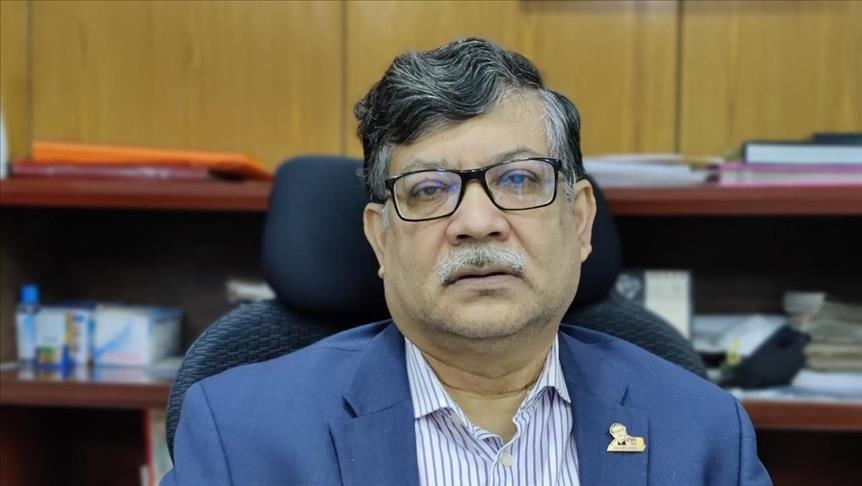US sanctions may bar Bangladeshi elite force from serving UN missions, say experts
Sanctions may affect elite force's contribution to UN missions, Bangladeshi authorities decide to set up human rights cell
 File Photo - Bangladesh’s Foreign Secretary Masud Bin Momen
File Photo - Bangladesh’s Foreign Secretary Masud Bin Momen
DHAKA, Bangladesh
Fearing that the US sanctions on its elite police force may affect its ability to contribute to the UN peace missions, Bangladesh has decided to set up a human rights cell.
According to Bangladesh’s Foreign Secretary Masud Bin Momen, his country is considering setting up a human rights cell in a bid to better analyze the prevailing human rights situation.
Claiming that the human rights situation was not properly presented to the UN or other international platforms, he said the Bangladesh mission in New York was working at different levels to address the issue of sanctions on the Rapid Action Battalion (RAB) and its officials.
“We will present the whole truth to the international community,” he said.
Founded in 2004, the RAB is a joint task force comprising members of the police, army, navy, air force, and border guards with the mandate to maintain internal security and gather intelligence.
Last year in December, the US Treasury Department’s Office of Foreign Assets Control (OFAC) imposed sanctions on Bangladesh’s elite force and some of its top officials on the charges of gross human rights abuses.
Citing reports of NGOs and other sources, OFAC reported that RAB and other Bangladeshi law enforcement agencies are responsible for more than 600 disappearances since 2009, nearly 600 extrajudicial killings since 2018, and torture.
Soon after the US decision, many analysts in the country apprehended that the decision will have a cascading effect on the RAB's capacity to participate in the UN missions.
Ban will dishearten security personnel
Speaking to Anadolu Agency, A. L. M. Fazlur Rahman, former head of Border Guard Bangladesh, said the ban on participating in the UN missions will dishearten security force personnel as they consider the posting a great achievement of their career.
“It is a great dream of every member of Bangladesh’s security forces including army, navy, air force, police and elite force RAB to get a chance in the UN peacekeeping missions on the economic ground,” Rahman added.
He said the US sanctions also convey a message to the world's biggest platform.
“Now the right job for Bangladesh will be how quickly the country will amend its elite force and resolve the rights concerns so that the force's entrance to the UN peacekeeping mission is not harmed,” he added.
Abdul Kaium, a former top police official, said that the allegations of human rights abuses against the RAB could not be denied.
“The situation has worsened to the present state due to the long indemnity to the force’s (RAB) rights violation for many years,” Kaium said.
He urged Bangladeshi authorities to immediately investigate all cases of rights abuses and take necessary action on cases related to enforced disappearances, extrajudicial killings, torture, and other rights violation.
He said offenses of some officials have thrown the whole force into a crisis.
Good communication with US
Bangladesh’s Foreign Minister AK Abdul Momen told Anadolu Agency that elite forces have been serving the UN peace process very competently.
“Some criminal gangs, who are involved with human trafficking, extremism, illegal narcotic trading, and such other offenses, always plot conspiracies against this elite force for its dozens of successful operations to curb those offenders,” he said.
He said Bangladesh has good communication with the US administration and he hoped that ties will not be affected by any amount of propaganda.
On the setting up of the human rights cell, he said Bangladesh was not doing it for foreigners, but as a commitment to improving the human rights situation of people.
Anadolu Agency website contains only a portion of the news stories offered to subscribers in the AA News Broadcasting System (HAS), and in summarized form. Please contact us for subscription options.







